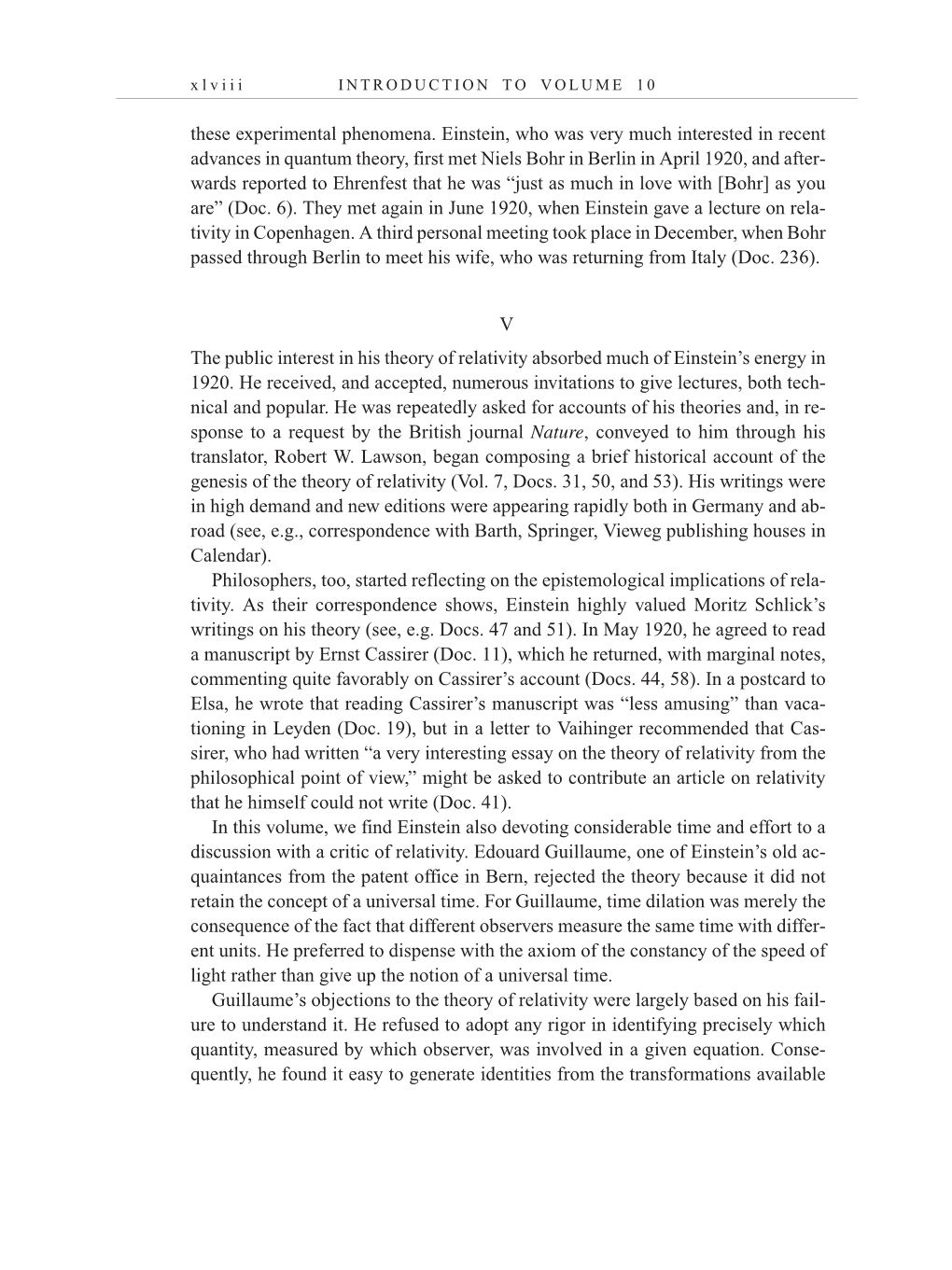x l v i i i I N T R O D U C T I O N T O V O L U M E 1 0
these experimental phenomena. Einstein, who was very much interested in recent
advances in quantum theory, first met Niels Bohr in Berlin in April 1920, and after-
wards reported to Ehrenfest that he was “just as much in love with [Bohr] as you
are” (Doc. 6). They met again in June 1920, when Einstein gave a lecture on rela-
tivity in Copenhagen. A third personal meeting took place in December, when Bohr
passed through Berlin to meet his wife, who was returning from Italy (Doc. 236).
V
The public interest in his theory of relativity absorbed much of Einstein’s energy in
1920. He received, and accepted, numerous invitations to give lectures, both tech-
nical and popular. He was repeatedly asked for accounts of his theories and, in re-
sponse to a request by the British journal Nature, conveyed to him through his
translator, Robert W. Lawson, began composing a brief historical account of the
genesis of the theory of relativity (Vol. 7, Docs. 31, 50, and 53). His writings were
in high demand and new editions were appearing rapidly both in Germany and ab-
road (see, e.g., correspondence with Barth, Springer, Vieweg publishing houses in
Calendar).
Philosophers, too, started reflecting on the epistemological implications of rela-
tivity. As their correspondence shows, Einstein highly valued Moritz Schlick’s
writings on his theory (see, e.g. Docs. 47 and 51). In May 1920, he agreed to read
a manuscript by Ernst Cassirer (Doc. 11), which he returned, with marginal notes,
commenting quite favorably on Cassirer’s account (Docs. 44, 58). In a postcard to
Elsa, he wrote that reading Cassirer’s manuscript was “less amusing” than vaca-
tioning in Leyden (Doc. 19), but in a letter to Vaihinger recommended that Cas-
sirer, who had written “a very interesting essay on the theory of relativity from the
philosophical point of view,” might be asked to contribute an article on relativity
that he himself could not write (Doc. 41).
In this volume, we find Einstein also devoting considerable time and effort to a
discussion with a critic of relativity. Edouard Guillaume, one of Einstein’s old ac-
quaintances from the patent office in Bern, rejected the theory because it did not
retain the concept of a universal time. For Guillaume, time dilation was merely the
consequence of the fact that different observers measure the same time with differ-
ent units. He preferred to dispense with the axiom of the constancy of the speed of
light rather than give up the notion of a universal time.
Guillaume’s objections to the theory of relativity were largely based on his fail-
ure to understand it. He refused to adopt any rigor in identifying precisely which
quantity, measured by which observer, was involved in a given equation. Conse-
quently, he found it easy to generate identities from the transformations available
